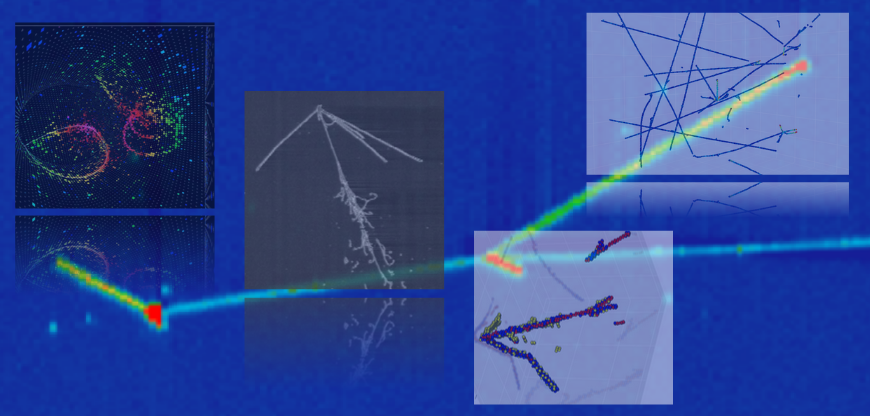Speaker
Description
The Large Enriched Germanium Experiment for Neutrinoless double-beta Decay (LEGEND) project searches for the lepton-number-violating neutrinoless double-beta (0vbb) decay of Ge-76. By utilizing High Purity Germanium (HPGe) detectors enriched with Ge-76 and immersing them directly into liquid argon (LAr), LEGEND combines the superior energy resolution of germanium detectors with the scintillating properties of LAr to significantly enhanced background reduction.
The recent advancements in computation have paved the way for machine learning to emerge as a powerful tool in various aspects of analysis and simulation within the LEGEND project. A wide range of machine learning techniques is being explored, including unsupervised data cleaning networks for real-time operation, pulse shape classification (Network Pulse Shape Analysis and Feature Importance Supervision), waveform reconstruction and spectrum fitting (Interpretable Boosted Decision Tree and RNN Dead Layer Fitting), Monte Carlo simulation and tuning (GAN waveform simulation and Cyclic Positional U-Net), and experimental design optimization (Multi-Fidelity Gaussian Process). In this talk, I will introduce these novel approaches which hold great promise for increasing the 0vbb half-life sensitivity, benefiting not only the LEGEND project but also other fundamental physics experiments like 0vbb searches.



